- ALL SERVICES
- • Salesforce Consulting Services
- • Managed Services
- • Simplification of Interfaces
- • Data Migration and Processing
- • Architectural Solutions and Scoping
- • Code Review, QA and Support
- • Applications Development
- • Pre-sales and Solutions Consulting
- • Technical Audit and Support
- • Custom Applications Development
- • AI Apps
BLOG
Automation in the Insurance Industry: Benefits and Salesforce Use Cases
• Date: July 2023 •
Estimated reading time: 9 minutes
Estimated reading time: 9 minutes
Subscribe for more useful content
We promise we'll not spam your mailbox!
By submitting you agree to receive a newsletter from Twistellar. You can unsubscribe anytime.
Unstructured data is the key pain point that drives companies from various industries towards automation, and insurance is no exception.
With automation, you'll be able to reduce costs on manual processes, organize your data, and sell much more efficiently.
In this article, we'll look more closely at the advantages of automation for insurance companies and useful applications, particularly those for Salesforce-using companies.
Contents:
Insurance Workflow Automation Benefits
Automating insurance workflows has a number of advantages, including:
1. Boosting effectiveness while cutting costs. Automation can lower the cost of manual activities and free up employees for sophisticated work.
2. Enhancing the current level of customer service. But for typical automation platforms, insurance firms have a possibility to use intelligent automation technology to enhance their workflows, such as conversational Artificial intelligence (AI) and Robotics Process Automation (RPA).
In the insurance industry, RPA refers to software "bots" that do repetitive duties performed by employees, such as collecting customer information, extracting data from claims, running background checks, and so on.
These agents, who are supported by conversational AI and RPA, can respond to the majority of first-line questions and, when necessary, and immediately escalate problems to live agents.
3. Reducing the number of errors. Process and payment delays can be brought on by poor data quality. By automating the data collection process, the risk of possible error can be minimized.
4. Better compliance and advanced fraud detection. Automating insurance workflows helps ensure compliance and reduce the risk of penalties. Conversational AI and RPA can help insurers detect and prevent fraud by recognizing patterns in talks and notifying cybersecurity teams.
Let's see how these benefits can be achieved in real use cases.
Insurance Workflow Automation Use Cases
Automation allows insurance firms to speed up the claims process, boost customer satisfaction, make sure that rules are followed, and free up staff members to work on more crucial projects.
Here are a few examples:
1. Customer service. Insurance companies can deploy virtual agents using artificial intelligence to increase work productivity. AI can also be used by insurance businesses to process data, analyse consumer profiles, and give information on demand.

The Evolution of AI customer Service
2. Customer onboarding. Conversational AI can help desk agents automate the setup of new policies and data collection to assist in onboarding new clients. Client information is automatically supplied by linking with current policy systems, resulting in detailed and precise client records.
3. Policy management. Insurance automation simplifies policy management by automating the process of issuing policies and sending policy renewal notifications.
4. Claims processing. Claims processing can be time-consuming since insurance agents must manually gather paperwork and verify information. This manual procedure can also allow for human error, which will significantly delay the process.
RPA and other forms of intelligent automation can be used by insurance companies to automate the entire claims workflow, from acceptance to evaluation and settlement. Automation can be used in processes such as collecting information about a claim, investigating a claim, checking, etc.
5. Underwriting. Virtual agents that are equipped with Natural Language Processing (NLP) and Natural Language Understanding (NLU) capabilities may analyse data from a variety of sources to determine risk. This analysis can then be utilised by underwriters to establish a customer's policy eligibility, coverage level, and monthly premium, enhancing the accuracy and speed of the underwriting process.
For example, possible situations:
- Mortality charges. If the applicant smokes, insurance premiums will increase due to health risks, including taking into account age
- Financial limits. If an applicant's net worth is X dollars today, his insurance coverage (death benefit) cannot exceed X $10. Depending on the conditions of the companies.
6. Regulatory compliance. The regulatory framework for the insurance business is complicated and nuanced. Sometimes tracking changes can be difficult for employees. However, virtual assistants can help with this. Validation automation can also be used to set and validate compliance alerts, validate customer data, and generate regulatory reports, all to ensure compliance.
The insurance sector is fiercely competitive, and businesses are always looking for ways to outdo one another. Utilizing technology is one way to accomplish this, and Salesforce can be a great help in competition.
Salesforce for Insurance: Sales Cloud, Financial Services Cloud, Marketing Cloud
Salesforce provides a number of solutions for automating insurance procedures. Depending on your business needs, you can choose to customize Sales or Service Cloud, utilize Financial Service Cloud, or enhance marketing operations with Marketing Cloud.
Salesforce Sales Cloud
Salesforce Sales Cloud is a tool for insurance companies to get useful sales workflows. However, this is a standard model that requires companies to consider customization options on a case-by-case basis.

Salesforce Sales Cloud Interface
Sales Cloud gives the following opportunities to insurance companies:
- Automate routine tasks such as sending follow-up emails, scheduling appointments, and updating customer records, freeing up agents' time to focus on more strategic tasks.
- Regular reminders to customers to renew their insurance policies at the optimal time according to their unique customer profile.
- Providing insurance companies with information about their sales funnel-based sales revenue will help develop more accurate revenue estimates and sales strategies.
Salesforce Financial Services Cloud
Salesforce Financial Services Cloud (FSC) is a solution created exclusively for financial services firms. This Salesforce product is widely utilised in a variety of financial industries, including but not limited to banking, mortgage, wealth management, and insurance. FSC is a ready-made solution for your industry.

Salesforce Financial Services Cloud Interface
It enables insurance professionals to manage their customer connections, policies, claims, and commissions in one location. Here are some examples of Salesforce Field Service Cloud applications in the insurance industry, specifically for process automation:
- Salesforce Industries offers an industry-specific data model for insurance companies that extends the standard object model to include key components such as accounts, contacts, products, and price books. By standardizing on this data model, insurance companies can reduce costs, accelerate time to value, and establish a strong governance program.
- The Regulatory Compliance process is one of the most complex in any industry. However, Salesforce's Financial Services Cloud (FSC) can assist in addressing these issues. Salesforce has shown a strong commitment to regulatory requirements by prioritizing them in the FSC product roadmap.
- FSC assists insurers in more efficiently managing claims by offering a centralized platform for tracking claims, communicating with consumers, and processing payments. For example, when a client contacts a company with a complaint, an employee will be able to see the client's background, information about its policies, and so on.
Salesforce Marketing Cloud
Salesforce Marketing Cloud is a platform that can be used by insurance companies to engage with customers and prospects through email, social media, mobile, and web channels.

Salesforce Marketing Cloud Interface
Here are some of the ways that insurance companies can use Marketing Cloud (MC):
- Marketing Cloud helps insurance businesses to build targeted email marketing based on specific client profiles.
- MC allows insurance companies to personalize the content of their websites based on the profile and behavior of the customer. This can help insurance companies provide a more personalized experience for customers and increase engagement.
- MC provides unique insights to identify potential pain points in the customer journey and how to improve them.
As a result, Salesforce Marketing Cloud can assist insurance firms in identifying cross-sell and upsell opportunities, nurturing leads, managing social media, customizing website content, and analyzing marketing performance.
To Wrap Up
Automation can bring significant benefits to the insurance industry, including increased efficiency, improved accuracy, and better customer experience.
However, it should be understood that the presence of any tools does not guarantee the result. The main thing is to build business processes, determine the pain points of your company and implement automation correctly.
Feel free to contact one of our experts if you need help in automating any of your business processes in Salesforce.
Twistellar's team has carried out a number of industry-oriented projects and we are always open to discuss yours!
Our deep understanding of Salesforce platform ensures successful handling of projects in any domain
By submitting you agree to receive a newsletter from Twistellar. You can unsubscribe anytime.
Our Articles, News and Salesforce Overviews
Feeling like teaming up with us at Twistellar? We are excited too! Whether you'd like to customize your org, build a bespoke application or integrate a third-party tool, Twistellar is ready to help you.
Get in touch to discuss your Salesforce ideas!

